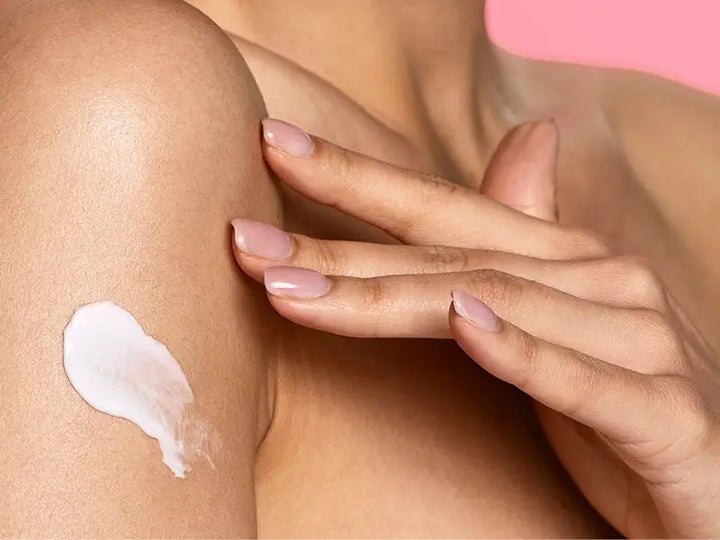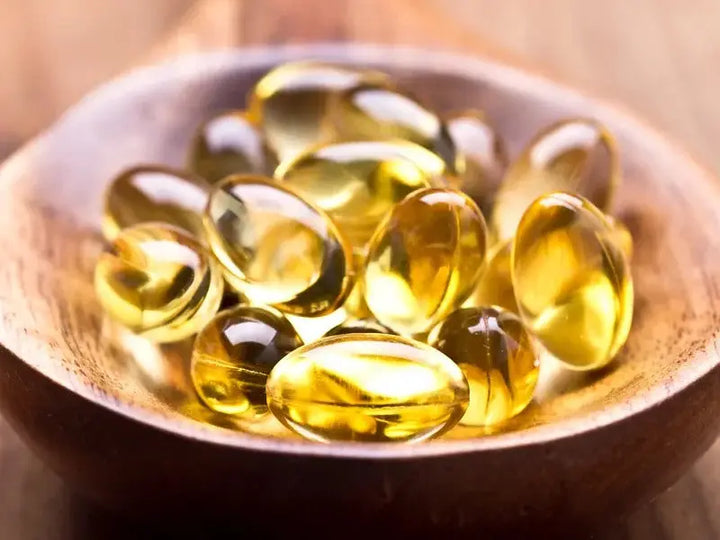Collagen is a protein that plays a vital role in the human body, particularly in the health and appearance of our skin. It is the most abundant protein in the body and is responsible for providing structural support to our skin cells. The production of collagen in the body decreases as we age, leading to wrinkles, fine lines, and loss of elasticity. However, it is possible to boost collagen production through both topical and internal methods. In this article, we will explore the benefits of collagen for the skin on the face and the different ways to enhance collagen production in the body, from incorporating amino acids in our diet to using collagen-infused skincare products. Whether you're looking to prevent skin ageing or to revive your youthful appearance, understanding the power of collagen is key.
Types of Collagen and Their Specific Benefits for the Face
There are several types of collagen in the body, each with its own unique characteristics and benefits. The three most common types of collagen found in the skin are Type I, Type II, and Type III.
Type I collagen is the most abundant type of collagen in the body and is responsible for providing structural support to our skin cells. It is found in the dermis layer of the skin and helps to keep the skin firm and tight. It is also important for preventing wrinkles and fine lines, as well as for healing wounds.
Type II collagen is found in the cartilage and is essential for maintaining healthy joints. It also helps to keep the skin hydrated and plump.
Type III collagen is also important for the skin, as it helps to maintain elasticity and hydration. It is found in the extracellular matrix of the skin, and works together with Type I collagen to provide support and elasticity to the skin.
In summary, all types of collagen play an important role in maintaining the health and appearance of our skin. Type I collagen is important for firmness and structure, Type II for hydration, Type III for elasticity and Hyaluronic acid for hydration and plumpness. By understanding the unique benefits of each type of collagen, we can target specific areas of concern and develop a skincare routine that is tailored to our individual needs.
The Natural Aging Process and Collagen Production
As we age, our bodies go through a natural process that affects the production and quality of collagen in the skin. Collagen is a protein that plays a vital role in the health and appearance of our skin, providing structural support and elasticity. However, as we age, collagen production decreases, leading to wrinkles, fine lines, and loss of elasticity.
The natural aging process is caused by a combination of factors, including genetics, environmental exposure, and lifestyle choices. As we age, our skin cells begin to break down and produce less collagen, leading to a decrease in collagen levels in the skin. This can cause the skin to become thinner, less elastic, and more prone to wrinkles and fine lines.
In addition to the decrease in collagen production, the natural aging process also affects the quality of collagen in the skin. As we age, the collagen fibers in the skin become more rigid and less flexible, leading to a loss of elasticity and firmness. This can cause the skin to sag and lose its youthful appearance.
It's important to understand that the natural aging process is a normal and natural part of life. However, there are steps we can take to support collagen production and improve the quality of collagen in the skin. Incorporating collagen-boosting ingredients into our skincare routine, such as vitamin C, can help to stimulate collagen synthesis and improve the quality of collagen in the skin. Additionally, incorporating foods that are rich in amino acids, such as fish and leafy greens, can also help to support collagen production.
In conclusion, the natural aging process affects collagen production in the skin, leading to wrinkles, fine lines, and loss of elasticity. By understanding the natural aging process and taking steps to support collagen production, we can help to keep our skin looking youthful and radiant.
The Importance of Sun Protection and a Healthy Diet for Collagen Production Levels
Maintaining adequate levels of collagen in the skin is essential for maintaining a youthful and radiant appearance. There are several factors that can impact collagen levels in the skin, including sun exposure, diet, and lifestyle choices.
Sun exposure is one of the most significant factors that can impact collagen levels in the skin. Prolonged exposure to UV rays from the sun can damage the skin and cause it to produce more collagen. While this may sound like a good thing, the increased collagen production can actually lead to the formation of fine lines and wrinkles. Additionally, UV rays can also break down existing collagen in the skin, leading to a decrease in collagen levels over time.
This is why sun protection is so important when it comes to maintaining collagen levels in the skin. Using a broad-spectrum sunscreen with an SPF of 30 or higher and wearing protective clothing can help to protect the skin from UV damage and prevent the formation of fine lines and wrinkles.
A healthy diet is also an important factor in maintaining collagen levels in the skin. Consuming foods that are rich in vitamins and minerals, such as vitamins C and E, and amino acids, such as proline and lysine, can help to support collagen production and improve the quality of collagen in the skin. Additionally, incorporating foods that are rich in antioxidants, such as berries and leafy greens, can help to protect the skin from damage and prevent the breakdown of existing collagen.
In conclusion, sun protection and a healthy diet are essential for maintaining collagen levels in the skin and preventing the formation of fine lines and wrinkles. By incorporating sun protection and a nutrient-rich diet into our daily routines, we can help to keep our skin looking youthful and radiant.
Topical Collagen: A Solution to Restore Collagen Levels in the Skin
As we age, collagen production decreases, leading to wrinkles, fine lines, and loss of elasticity in the skin. However, topical collagen has become an increasingly popular solution to help restore collagen levels in the skin and improve its overall health and appearance.
Topical collagen is available in a variety of forms, including creams, serums, and masks. These products are designed to be applied directly to the skin and can help to increase collagen levels and improve the quality of collagen in the skin. One popular form of topical collagen is aloe vera gel, which contains high levels of collagen peptides that can help to support collagen production and improve the quality of collagen in the skin.
In addition to topical collagen, there are also several ingredients that can be added to skincare products to help boost collagen levels and improve the health of the skin. One of the most effective ingredients is retinoids, which have been shown to help increase collagen production and improve the quality of collagen in the skin. Vitamin C is another powerful ingredient that can help to boost collagen production and protect healthy skin cells from damage.
Hydrolyzed collagen is another form of topical collagen that has been shown to be effective in restoring collagen levels in the skin. Hydrolyzed collagen is a form of collagen that has been broken down into smaller peptides, making it easier for the skin to absorb. This form of topical collagen has been shown to help support collagen production and improve the quality of collagen in the skin, leading to a more youthful and radiant appearance.
In conclusion, topical collagen is a solution to restore collagen levels in the skin and improve its overall health and appearance. From creams and serums to aloe vera gel and hydrolyzed collagen, there are a variety of options available to help boost collagen levels and improve the quality of collagen in the skin. By incorporating topical collagen and collagen-boosting ingredients into our skincare routine, we can help to keep our skin looking youthful and radiant.
Internal Collagen Supplements: The Pros and Cons
In addition to topical collagen, there are also internal collagen supplements available in the form of pills and powders. These supplements are designed to be taken orally and can help to increase collagen levels from within the body. Some popular ingredients found in collagen supplements include hydrolyzed collagen and amino acids, which are key building blocks of collagen.
While internal collagen supplements have many potential benefits, it is important to be aware of any potential risks or downsides. One of the biggest concerns with collagen supplements is that they are not regulated by the FDA and may contain harmful additives or contaminants. Additionally, not all collagen supplements are created equal, and some may not contain the recommended amount of collagen or the right types of collagen to be effective.
Another potential downside of collagen supplements is that they may not be suitable for everyone. Those with allergies to specific ingredients, such as fish, should avoid certain types of collagen supplements. Additionally, those with certain medical conditions, such as kidney or liver disease, may not be able to take collagen supplements.
In conclusion, internal collagen supplements have the potential to increase collagen levels and improve the health of the skin, but it is important to be aware of any potential risks or downsides. It is always best to speak with a doctor or healthcare professional before starting any new supplement regimen. By taking a balanced approach and considering both the potential benefits and risks, individuals can make informed decisions about whether internal collagen supplements are right for them.
Tips for Boosting Collagen on the Face
If you are looking to boost collagen levels on your face, there are several simple steps you can take to support your skin's natural collagen production. Here are a few recommendations to get you started:
Protect your skin from the sun: Wearing a broad-spectrum sunscreen and limiting your exposure to UV rays is one of the best things you can do to protect your skin and preserve collagen levels.
Eat a healthy diet: A diet rich in vitamins and minerals, especially Vitamin C, can help to boost collagen production and improve the health of your skin. Foods like berries, leafy greens, and citrus fruits are all great sources of Vitamin C.
Stay hydrated: Drinking plenty of water is essential for maintaining healthy skin, as hydrated skin is more able to produce collagen.
Consider topical collagen products: Topical collagen products, such as creams, serums, and masks, can help to restore collagen levels on the face and improve the health of the skin. Look for products that contain ingredients like Vitamin C, retinoids, and hydrolyzed collagen.
Incorporate collagen supplements into your routine: Collagen supplements can help to increase collagen levels from within the body and provide additional support for skin health. Just be sure to choose a high-quality, reputable brand and speak with a doctor or healthcare professional before starting any new supplement regimen.
By following these simple recommendations, you can help to boost collagen levels on your face and enjoy more youthful, radiant skin. Just be sure to be patient, as it may take several weeks or months to see noticeable results..














































